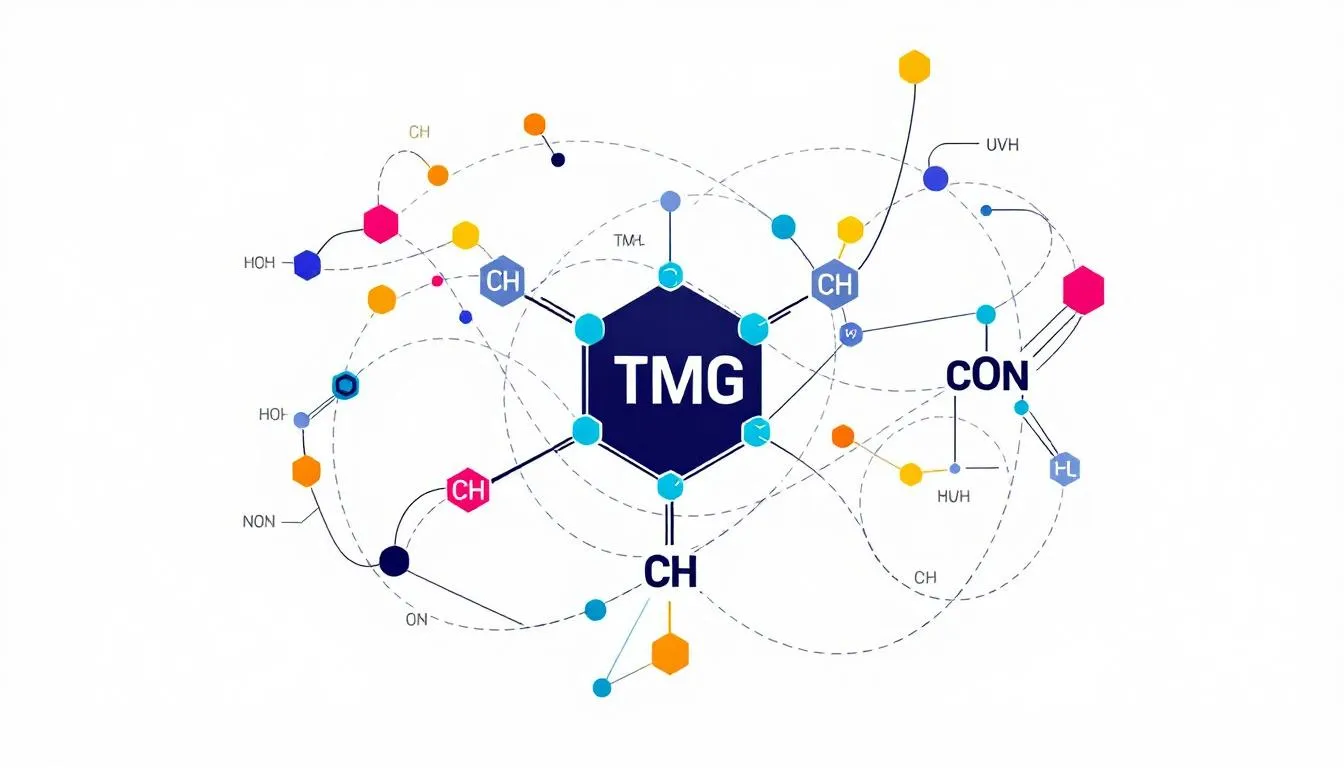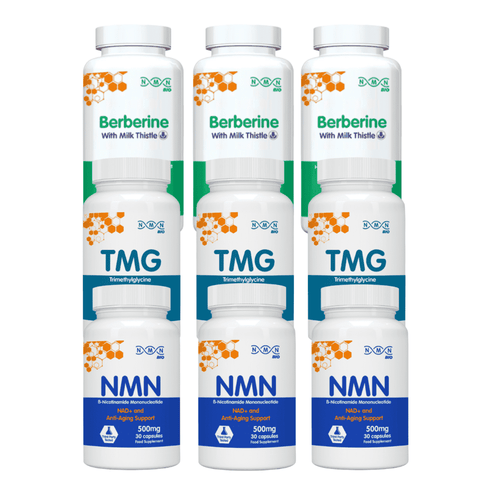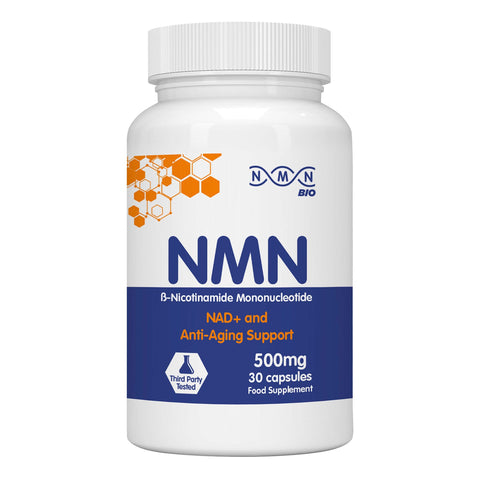Understanding TMG and MTHFR: Benefits and Dosage for Optimal Health

If you have an MTHFR mutation, managing homocysteine levels is crucial. TMG, or Trimethylglycine, can help by converting homocysteine into methionine, thereby reducing cardiovascular risks and supporting overall health. In this article, we’ll explore how TMG MTHFR benefits those with MTHFR mutations, its role in the body, sources, recommended dosages, and possible side effects.
Key Takeaways
-
TMG (Trimethylglycine) is essential for methylation, helping to convert homocysteine into methionine, thereby reducing cardiovascular risk and supporting overall health.
-
MTHFR mutations can impair the body’s ability to metabolise homocysteine, leading to elevated levels that are associated with various health issues, including cardiovascular and neurological disorders.
-
TMG supplementation combined with methylated B vitamins offers comprehensive support for individuals with MTHFR mutations, enhancing methylation and promoting better health outcomes.
What is TMG (Trimethylglycine)?

Trimethylglycine (TMG), also known as betaine, is a fascinating compound that holds the key to several vital processes within our bodies. Chemically, TMG is composed of glycine bonded to three methyl groups, making it a crucial player in the methylation process, which is necessary for DNA production and overall cellular function. This essential amino acid derivative can be naturally produced by the body or sourced from dietary items like beetroot and spinach, where it may also influence enzyme activity.
TMG primarily donates a methyl group to convert homocysteine into methionine, an essential amino acid. Elevated homocysteine levels are linked to a higher risk of heart disease, so this conversion is crucial. TMG’s role in this process helps lower homocysteine levels, potentially reducing cardiovascular risk.
Beyond its cardiovascular benefits, TMG supports:
-
Serotonin production, a neurotransmitter that regulates mood
-
Nitrous oxide for blood vessel health
-
Reduction of homocysteine, which indirectly supports the synthesis of glutathione and cysteine, both crucial for detoxification and antioxidant defenses.
Understanding MTHFR: What It Is, Why It Matters, and How to Test for Mutations
MTHFR stands for methylenetetrahydrofolate reductase, an important enzyme in the body responsible for converting folate into its active form, methylfolate. This process is essential for the methylation cycle, which supports DNA production, detoxification, and the metabolism of homocysteine into methionine. When there are mutations in the MTHFR gene—commonly called MTHFR mutations or polymorphisms—this enzyme may not work as efficiently. As a result, homocysteine levels can rise, increasing the risk of cardiovascular problems, neurological issues, and other health concerns.
To find out if you have an MTHFR mutation, genetic testing is available through blood or saliva samples. These tests look for common variants like C677T and A1298C. Testing is often recommended for individuals with a family history of related health conditions, elevated homocysteine levels, or unexplained health issues. A healthcare provider can order the test and help interpret the results, guiding you toward tailored lifestyle, dietary, or supplementation strategies to support your health.
The Role of MTHFR Mutations in Health
MTHFR mutations, caused by variations in the methylenetetrahydrofolate reductase (MTHFR) genes, are more common than many realise. These genetic mutations can lead to an impaired ability to metabolise homocysteine, resulting in elevated levels of this amino acid in the blood, particularly in individuals with low levels of this compound. This disruption in the methylation process can have far-reaching impacts on health, particularly in individuals with MTHFR polymorphisms, and may be influenced by factors such as s adenosyl methionine. Additionally, the presence of an MTHFR mutation can further complicate these issues.
Elevated homocysteine is not just a marker for potential cardiovascular issues; it is also associated with neurological disorders and other health problems. Individuals with MTHFR mutations may struggle with effective methylation, a process vital for brain health, detoxification, and overall bodily functions. This can lead to nutrient deficiencies, poor brain function, and increased risk for various conditions.
One of the main concerns for individuals with MTHFR mutations is their inability to process folate properly. This inefficiency can result in higher homocysteine levels, which in turn, can increase the risk of heart disease and other cardiovascular issues. Moreover, research suggests that these mutations can affect the metabolism of medications, altering their effectiveness and potentially leading to adverse reactions.
The broad spectrum of health issues linked to MTHFR mutations underscores the importance of managing homocysteine levels. From cardiovascular health to brain function, the effects of these genetic mutations are profound. Understanding and addressing them through targeted interventions, such as TMG supplementation, can lead to better health outcomes and improved quality of life.
How TMG Supports Individuals with MTHFR Mutations
For those with MTHFR mutations, TMG can be transformative. Its support of methylation lowers homocysteine levels, crucial for overall health. By donating a methyl group, TMG converts homocysteine into methionine, reducing heart disease risk. Additionally, TMG acts as a methyl donor, further enhancing these benefits.
TMG benefits extend beyond cardiovascular health. Research shows TMG supplementation can:
-
Improve insulin resistance, aiding blood sugar regulation and potentially benefiting those with metabolic conditions
-
Enhance athletic performance
-
Support mental health
-
Improve liver function
A standout benefit of TMG is its impact on cardiovascular heart health. By reducing blood homocysteine levels, TMG improves metabolic profiles and cognitive function. Importantly, TMG supplementation has not been associated with negative impacts on cholesterol or blood pressure, making it a safe option for many.
Moderate to high-dose TMG supplementation effectively reduces homocysteine and supports whole-body methylation. This makes TMG an invaluable tool for those with MTHFR mutations, offering a pathway to better health and well-being.
Sources of TMG

TMG can be sourced from a variety of natural foods, making it relatively easy to incorporate into your diet. Some of the richest sources include wheat products, spinach, beets, and seafood. For instance, beetroot provides between 114 to 297 mg of TMG per 100 grams, making it a potent source of this beneficial compound. Wheat bran is another excellent source, containing approximately 1,339 mg of TMG per 100 grams.
For additional support, TMG is available in supplement form, particularly useful for individuals with MTHFR mutations who require higher doses than diet alone can provide for nutritional support.
Whether through diet or supplements, ensuring adequate TMG intake is crucial for supporting methylation and playing an important role in overall health.
Recommended Dosage of TMG for MTHFR Mutations
Determining the right TMG dosage is essential for benefits while minimizing side effects. Consulting a healthcare provider before starting TMG is crucial, especially for those with underlying health conditions, to ensure personalised recommendations.
Most TMG supplements range from 750 mg to 3,000 mg per serving. Research suggests:
-
An effective dosage for lowering homocysteine levels is around 4 grams per day.
-
The safe upper limit is up to 15 grams per day.
-
Starting with a lower dose and gradually increasing it helps mitigate initial side effects.
Tailoring TMG supplementation to individual needs is essential. Factors like personal health conditions, genetic predispositions, and specific health goals should guide dosage decisions. Starting with lower doses and consulting healthcare providers optimises TMG intake for the best results.
Potential Side Effects and Interactions of TMG
While TMG is generally well-tolerated, some individuals may experience side effects like nausea, vomiting, and gastrointestinal distress. However, TMG supplementation can also help prevent and treat liver disease, contributing to overall digestive health.
It is also important to consider potential interactions with other aspects of supplementation and other supplements. For instance, supplementing with methylfolate can lead to digestive issues and other reactions. Ensuring a balanced approach to supplementation and monitoring any adverse effects can help maintain overall health and well-being.
Combining TMG with Other Supplements for MTHFR Support
Combining TMG with other supplements can enhance its benefits, especially for those with MTHFR mutations. Folate, vitamin B12, and vitamin B6 are essential for regulating homocysteine levels. Deficiency in these B vitamins commonly causes high homocysteine levels.
The best forms of these vitamins for individuals with MTHFR mutations are L-methylfolate, methylcobalamin (active B12), and Pyridoxal-5-phosphate (P5P), the active form of vitamin B6. These active forms are more bioavailable and effective in supporting the methylation process, which is crucial for lowering homocysteine levels.
Combining TMG with methylated B12 enhances methylation support by:
-
Improving methyl group transfer essential for bodily functions
-
Being particularly beneficial for those with the MTHFR gene mutation
-
Addressing the specific methylation needs of individuals with this mutation
A supplementation strategy that includes TMG, methylated B12, and other essential B vitamins provides comprehensive support for individuals with MTHFR mutations. This approach ensures all aspects of the methylation process are supported, leading to better health outcomes through supplementation strategies.
Dietary and Lifestyle Tips for Managing MTHFR Mutations
Managing MTHFR mutations requires a holistic approach, including dietary and lifestyle changes. Incorporating fresh fruits, vegetables, fish, and eggs into your diet can help lower homocysteine levels and provide essential nutrients and key cofactors. Fermented foods like yogurt and kimchi enhance gut health, supporting optimal nutrient absorption.
Staying adequately hydrated is crucial. Drinking at least 2 liters of water daily optimises metabolic processes and supports overall health. Limiting gluten-containing foods can reduce inflammation associated with MTHFR mutations, further benefiting the body’s health.
Regular exercise is important for managing homocysteine levels and metabolising homocysteine. Key recommendations include:
-
Engaging in at least 30 minutes of physical activity five times a week to help manage weight and improve overall health.
-
Adopting whole food diets.
-
Minimising exposure to harmful substances.
These steps can substantially benefit individuals with MTHFR mutations.
Foods rich in TMG, such as seafood and quinoa, provide additional support for methylation processes. Combining these dietary and lifestyle strategies helps individuals with MTHFR mutations effectively manage their condition and improve their quality of life.
Summary
In summary, understanding the role of TMG and its benefits for individuals with MTHFR mutations is crucial for optimising health. TMG supports methylation, lowers homocysteine levels, and provides various other health benefits. By incorporating TMG through diet and supplements, consulting healthcare professionals for personalised dosage recommendations, and adopting holistic dietary and lifestyle changes, individuals can effectively manage MTHFR mutations and improve their overall well-being. Embrace this knowledge and take proactive steps towards better health today.
Frequently Asked Questions
What is TMG and how does it work?
TMG, or trimethylglycine, serves as a methyl donor in the body, facilitating the conversion of homocysteine to methionine, which is vital for lowering homocysteine levels and promoting cardiovascular and liver health. Thus, TMG plays an essential role in maintaining overall metabolic function.
What are the benefits of TMG for individuals with MTHFR mutations?
TMG is beneficial for individuals with MTHFR mutations as it supports the methylation process, lowers homocysteine levels, and can help reduce cardiovascular risks, improve mental health, and enhance insulin resistance. These effects contribute significantly to overall well-being for those affected.
How much TMG should I take?
To effectively lower homocysteine levels, a common dosage of TMG is around 4 grams per day, but it's advisable to start with lower amounts and consult a healthcare professional for personalised guidance.
Are there any side effects of taking TMG?
TMG supplementation can lead to mild side effects such as nausea, vomiting, and gastrointestinal distress. It's advisable to start with lower doses and consult a healthcare provider if you experience any adverse effects.
Can TMG be combined with other supplements?
TMG can be effectively combined with other supplements, especially B vitamins such as folate, B12, and B6, to enhance methylation support and regulate homocysteine levels. This combination is particularly beneficial for those with MTHFR mutations.
Researched and reviewed by Dr Elena Seranova, Ph.D.
Dr Seranova holds a master's degree in Translational Neuroscience from the University of Sheffield, UK, and a Ph.D in Stem Cell Biology and Autophagy from the University of Birmingham, UK. She is a published author in multiple peer-reviewed journals, including Cell Reports and Developmental Cell.
LEARN MORE!





Leave a comment